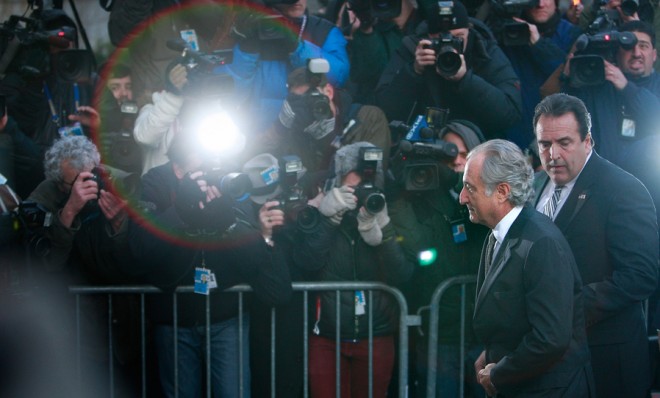5 reasons JPMorgan is having a terrible summer
The mega-bank's lawyers probably haven't seen much vacation time

A free daily email with the biggest news stories of the day – and the best features from TheWeek.com
You are now subscribed
Your newsletter sign-up was successful
The world's biggest bank in terms of assets is set to become the world's biggest bank in terms of legal costs.
Four years ago, JPMorgan and CEO Jamie Dimon performed the Wall Street equivalent of a magic trick when it emerged from the subprime mortgage crisis with a reputation for being pretty good at risk management.
But by the summer of 2013 regulators had caught up with the bank, with Dimon and company now facing a twister of charges from various federal agencies. The bank said recently it expects legal problems to cost as much as $6.8 billion in addition to funds it already has set aside for such contingencies.
The Week
Escape your echo chamber. Get the facts behind the news, plus analysis from multiple perspectives.

Sign up for The Week's Free Newsletters
From our morning news briefing to a weekly Good News Newsletter, get the best of The Week delivered directly to your inbox.
From our morning news briefing to a weekly Good News Newsletter, get the best of The Week delivered directly to your inbox.
Here, five accusations the bank is now fielding:
1. Energy market manipulation
After paying $410 million earlier this summer to settle charges of energy market manipulation brought by the Federal Energy Regulatory Commission (FERC), JPMorgan now faces a similar investigation by the Justice Department related to the bank's suspicious activities in power markets in California and the Midwest. In the FERC settlement, JPMorgan was accused of using "manipulative bidding strategies" from September 2010 to November 2012 to reap federal payments designed to protect power plants.
2. Nepotism
A free daily email with the biggest news stories of the day – and the best features from TheWeek.com
The Securities and Exchange Commission is probing the bank over its hiring practices in Hong Kong, namely whether JPMorgan hired the offspring of Chinese officials as a strategy to win business, according to The New York Times.
If so, the bank may have violated a provision in the Foreign Corrupt Practices Act, or FCPA, that forbids companies from giving foreign officials money or a "thing of value" in return for business.
3. Failing to prevent the London Whale
After charging two traders involved in the $6 billion trading loss known as the London Whale incident, regulators are investigating the bank's role in the debacle, including whether it had adequate control over its trading operations.
Unlike many recent cases, in which banks have settled without admitting or denying wrongdoing, the SEC is reportedly trying to get JPMorgan to admit it misbehaved. If the agency succeeds it will set a strong precedent for other similar cases, and possibly make it harder for JPMorgan to defend itself in individual civil suits that spring from the case.
4. Breaking securities laws
Earlier this month, JPMorgan said the Justice Department had reached a "preliminary conclusion" that the bank broke civil securities laws when it traded risky mortgage-backed securities from 2005 to 2007, in the run-up to the financial crisis.
Regulators are still sifting through piles of cases about banks' shady practices leading up to the crisis, and JPMorgan is by no means the only bank coming under scrutiny. Earlier this month, the government charged Bank of America with defrauding investors when it sold $850 million of hazardous securities while hiding the risks.
5. Facilitating Bernie Madoff's Ponzi scheme
On top of all that, JPMorgan says it's still responding to regulators' questions about Bernie Madoff's Ponzi scheme, though the bank declined to provide specifics. JPMorgan was Madoff's main bank for two decades, and has been accused by the independent trustee overseeing Madoff's bankruptcy of being "willfully blind to the fraud, even after learning about numerous red flags surrounding Madoff."
Carmel Lobello is the business editor at TheWeek.com. Previously, she was an editor at DeathandTaxesMag.com.